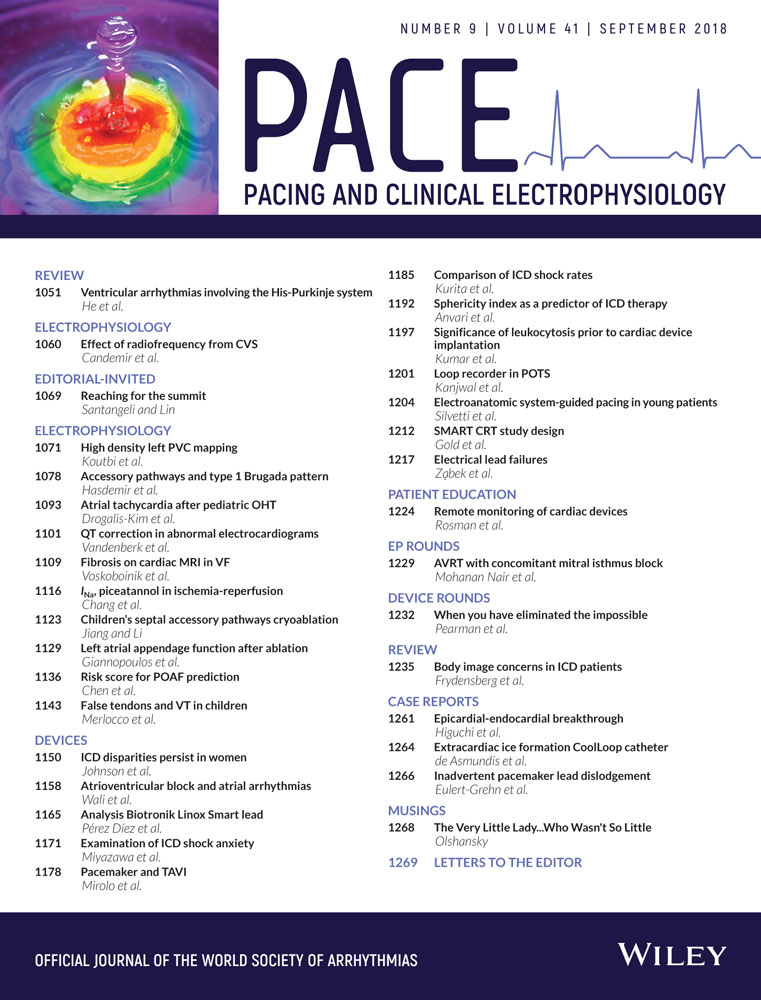The rationale and design of the SMART CRT trial
Funding information: The SMART CRT study is supported and funded by Boston Scientific Corporation.
Abstract
Aims
The SMART CRT study will assess the efficacy of an atrioventricular optimization algorithm to improve reverse remodeling among patients undergoing cardiac resynchronization therapy (CRT) in the presence of interventricular electrical delay.
Methods and results
The SMART CRT study is a global, multicenter, prospective, randomized study of patients undergoing CRT implantation. The primary endpoint of this trial is response rate to CRT, defined as decrease in left ventricular end-systolic volume (LVESV) ≥15% at 6 months compared to preimplant baseline. Additional prespecified analyses are: (1) clinical composite endpoint combining all-cause mortality, heart failure events, New York Heart Association class, and Quality of Life (using a patient global assessment instrument); (2) the individual components of the clinical composite endpoint; (3) 6-minute walk distance; (4) Kansas City Cardiomyopathy Questionnaire; (5) LVESV as a continuous variable; and (6) absolute left-ventricular ejection fraction. Subjects with intraventricular delay ≥ 70 ms measured between the right ventricular and left ventricular pacing leads will be randomized in a 1:1 ratio to have either an AV Delay and pacing chamber determined by SmartDelay™ or a Fixed AV Delay of 120 ms with biventricular pacing. Enrollment of an estimated 726 of subjects from up to 100 centers worldwide is planned to achieve 436 randomized subjects and 370 complete data sets required to power the primary endpoint.
Conclusions
This trial will provide important data regarding the importance of AV Delay programming in patients with prolonged interventricular delay at the pacing sites.




